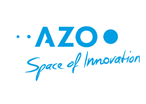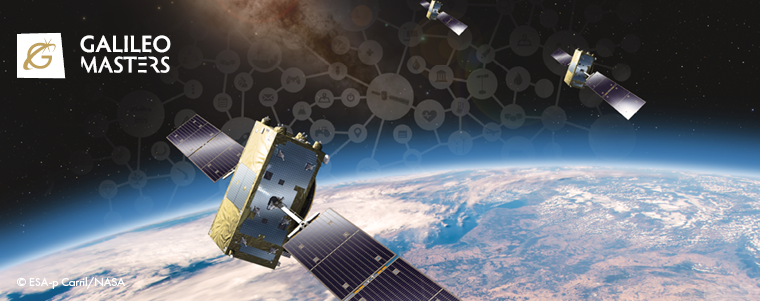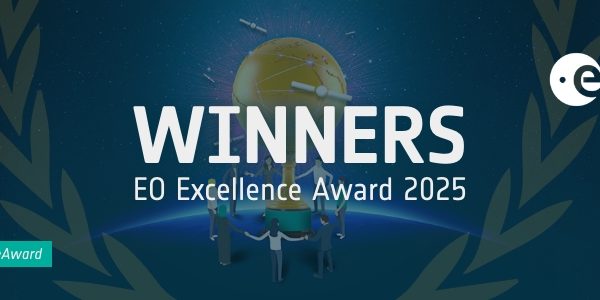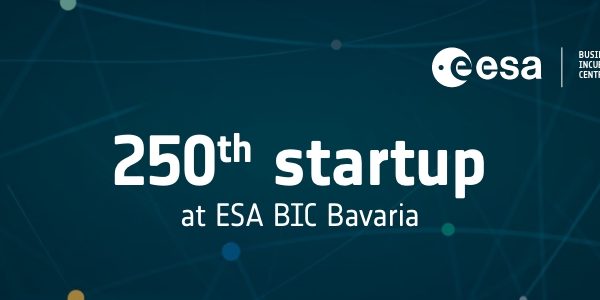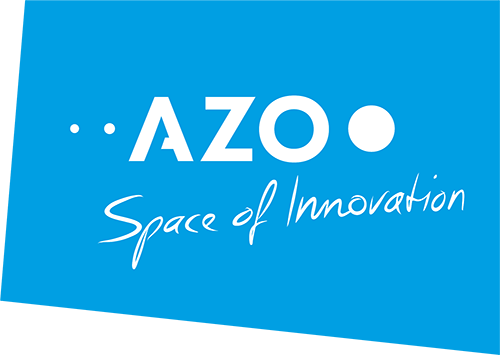At the 11th European Space Policy Conference in Brussels, GSA Executive Director Carlo des Dorides explained why Europe’s flagship satellite navigation system, Galileo, is a cornerstone of the strategy for a European Single Digital Economy.
The global economy is rapidly being digitised. Information and communications technologies are no longer confined to a specific sector but constitute the foundation of all modern innovative economic systems. Connectivity, in particular, is now seen as a key enabler of a multitude of new services that are transforming the global scene.
“The future of intelligent connectivity is going hand-in-hand with the future of GNSS,” said GSA Executive Director Carlo des Dorides, speaking at the 11th European Space Policy Conference in Brussels.
Important milestone
The term ‘intelligent connectivity’ describes the powerful combination of flexible, high-speed 5G networks, the Internet of Things (IoT), artificial intelligence (AI) and big data. Today, location plays a major role in all of these developments, with navigation and Earth observation data combining to provide the needed geographical framework to deliver personalised services.
“Just last month, in December 2018, we achieved a very important milestone,” said des Dorides, “namely that more than fifty percent of the worldwide population is now connected to the digital world, to the Internet.”
It also means that the other fifty percent will be getting connected in the coming years, and this will revolutionise the way individuals think and societies operate. People today and people tomorrow will be connected in new and different ways. They will have different needs and will use their connectivity for as yet unimagined purposes.
“We can see that this expansion is continuing and the growth rate is really amazing,” des Dorides said. “So we are in the age of what some people are describing as a ‘silent revolution’. Every day we are seeing more and more new users and new ways to connect to the growing digital world.”
Hard work rewarded
The GSA has been working ceaselessly to ensure the widespread uptake of European GNSS technologies, including Galileo and EGNOS, and the efforts have been paying off. An important element is the incorporation of Galileo-enabled GNSS receivers in handheld devices, such as smartphones.
“We have some other very important figures to mention,” said des Dorides. “Today we have more subscriptions worldwide for mobile phones than inhabitants in the world, and with all that, around seventy percent of these digital devices are broadband-enabled. So this is the connection with the digital world.”
Des Dorides talked about the closing gap between the physical world and the digital world: “There is a clear convergence, and the catalyst, the enabler, is the Internet of Things, the ubiquitous things, and the best example of ubiquitous things are our smartphones – this is the context we are living in. We also know that at the basis of the ubiquitous things is geo-positioning, and in particular GNSS. Fifty percent of our apps in our smartphones require geo-positioning and ninety percent of those require GNSS, so here is the link with GNSS.”
It should also be noted that in addition to location information, accurate timing delivered by GNSS is providing an indispensable tool for precisely synchronising transactions, including those operated by Digitally Autonomous Organisations in a distributed ledger. Apart from accurate timing, there is also a critical role for GNSS in the authentication of smart contracts, which is an important way to increase security of transactions. Galileo will provide a unique authentication feature with its service.
“In all of these areas, there is a GNSS-based silent revolution happening right now,” said des Dorides. “In 2011 an important new feature was multi-constellation, which is now in all our phones. This means a more reliable performance, with more available positioning and timing.”
“Then last year we also had a very important new milestone with the introduction of dual frequency, which will guarantee better accuracy on the mass market. GNSS, and Galileo in particular, is granting a flexible connection with the Internet of Things, the digital world, and big data.”
GNSS and Europe’s Digital Strategy
The rapid digitisation being seen in so many areas and at such a scale and speed bring immense opportunities for innovation, growth and jobs. It also raises challenging policy issues for public authorities that require coordinated EU action. All Member States are wrestling with similar problems, but on a national basis, which is too limited to allow them to seize all the opportunities and deal with all the issues raised by these profoundly transformational developments. That is why the European Commission has set the creation of a Digital Single Market for Europe as one of its key priorities, with digital autonomy in particular as a strategic goal.
Also speaking at the event in Brussels was Mariya Gabriel, EU Commissioner for Digital Economy and Society. She said the European space programmes have a key role to play in support of the European Digital Single Market: “We need to be moving to digital autonomy and sovereignty in Europe. The space sector can help us get there, from satellites for 5G coverage to important Earth Observation services of Copernicus and of course the critical geo-localisation capacity enabled by Galileo.”
Indeed, at a time of increasing geopolitical uncertainty, Galileo is now inarguably a critical infrastructure. Today, European GNSS is used to synchronise mobile networks, energy grids and financial transactions. It is used in emergency services, in safety-critical operations and, with the advent of AI and automation, driverless cars, drones and other autonomous systems will need GNSS for navigation.
In any number of vital application areas, including all that concerns the digital economy, Galileo is a key enabler of European independence and sovereignty, at the same time built to be interoperable with all the other GNSS systems in the world and able to provide a fully autonomous European solution.
